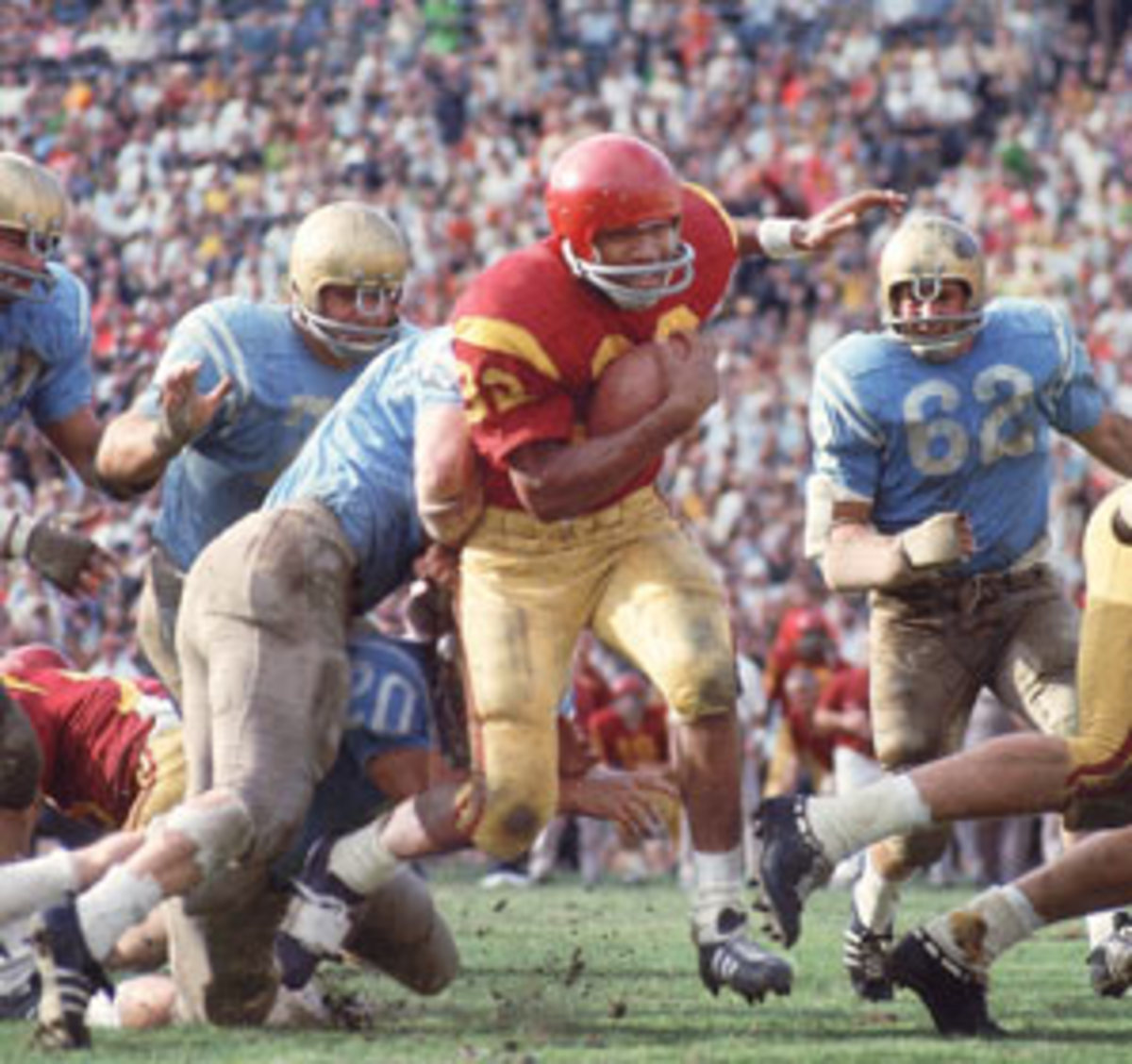'The Juice' changed the face of sports -- in a good way


Ironically, it was exactly 100 years ago this very month when the black athlete first became visibly controversial on the American scene. For then, on the day after Christmas, 1908, Jack Johnson battered Tommy Burns to become the heavyweight champion of the world, and thereby sent an alarmed cohort of good and true American white men off in their noble search for "the great white hope."
In a way, though, that was also the start of the great black hope in sport -- simply the dream to be accepted. That switchback journey would take African-Americans through Joe Louis and Jesse Owens and Jackie Robinson, through Jim Brown and Bill Russell and Muhammad Ali, until it came to ... yes: O.J. Simpson. Do not ever forget that in the journey of the black athlete, he was a singularly important creature. Oh, he was no rebel, no idealist and certainly no hero away from the gridiron, but he mattered. He really did. He was the first African-American crossover figure in sport.
At a time when even the best black athletes simply didn't get endorsements, Simpson was paired with Arnold Palmer, the very epitome of white male good-guy-ism. He made funny movies and was able to laugh at himself, not in a racial context, but just as another celebrity having fun on the screen. We white folk accepted him.
O.J. Simpson was Michael Jordan before there was a Michael Jordan.
O.J. Simpson was Tiger Woods before there was a Tiger Woods.
And yes, because O.J. was indeed a seminal African-American celebrity pioneer, somewhere in the garments that the American citizenry have clothed Barack Obama in, there are even a few threads that "The Juice" himself wove a quarter of a century ago when that raiment was first being cut on the bias.
Ahh, the Juice. Was any name so perfect? To give the devil his due, the charm absolutely oozed, until, I'm sure, it must have been evil itself that burst out of that charming effluence one foul and blood-red night. Anyway, thereafter that wonderful smile was forever and only a smirk, and, let us hope, that each round of golf he played to fill up his next 13 years -- as he dutifully searched the fairways of Florida for his wife's real murderer -- each round was only one more circle of hell for him.
So now he's gone. Hey, better late that never. They got Al Capone on income tax charges. You take what you can. Still, whenever I saw the Juice presumably enjoying himself these last 13 years, it only made me sadder to think of all the other members of his race who were so unjustly convicted of crimes through the years. But of course, one miscarriage of justice on the high side of celebrity is all the more cruel when weighed against all the merciless false convictions of poor black people down through our American years.
I would like to think, too, that all those who cheered so heartily for the Juice when the jury pronounced him "not guilty" 13 years ago would not be so quick to applaud such a man now that we have come a step closer to tolerance, so that whites and blacks may, together, at last even have the same great hopes.
